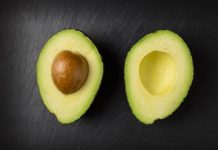
I am an ACSM and ACE Certified Personal Trainer. I’ve been in the business for about 10 years now and one of my missions has always been to help dispel the fads and myths about health and fitness. I have been reading your FAQs for some time now and would like to thank you for an outstanding contribution to the health education of our society. I enjoy reading your website and greatly appreciate the information that you make available to us all. (I also want to tell you that I admire your patience and lack of defensiveness when answering questions from people who sound as though they are trying to educate you, instead of visa-versa!)
My question is about the relationship of insulin to sugar and refined grains. It is my understanding that when we eat a lot of sugar at once, we induce the release of large quantities of insulin. This large insulin release causes the cells to take up large, unregulated quantities of sugar from the blood and actually leaves us with a low blood glucose level in the end. This gives us the tired feeling- loss of energy which is due to the “sugar crash” which comes after the very temporary “sugar high” that we get from eating the sugary foods. My few questions are based on the assumption that the above is correct.
1.) I read somewhere when eating fats with large amounts of sugar, the fats will be absorbed into the cells quicker, due to increased levels of insulin. What do you say about that?
2.) I have heard the claim that eating refined grains, (i.e. white rice, white breads, etc.) will cause the same “energy low” due to the speedy breakdown of the refined grain into sugars in the digestive system – (causing a high blood glucose level, causing increased insulin levels, causing quick sugar uptake into the system, leaving the body with low blood glucose and that tired feeling again). Is this true?
3.) Regardless if the above sugar-effects are correct, I am aware of the nutrient benefits of whole grain foods and encourage my clients to eat them. However, many of my clients tell me that they have compared calories in whole grain bread to calories in white bread and the whole grains have much more calories so they don’t want to eat them! Is this increased caloric content due to the fiber? Is fiber counted when measuring the calories of a product? If so, fiber isn’t absorbed, so I’d think that the calories of fiber really don’t matter.
I’d really appreciate any response. I have been trying to find the answers to these questions for quite some time now! Much Thanks.
Your basic assumption about the insulin response to foods is called the glycemic index. What that means is depending on the carbohydrate you eat, your blood glucose can go up very little or a lot. Typically though meals consist of several carbohydrates i.e. milk, bread, fruit, vegetables as well as desserts or sweets which can cause a variable (from individual to individual) increase in blood glucose.
All carbohydrates are made up of sugars. The body is going to break food carbohydrates down into simple sugars (glucose, fructose or galactose) whether the carbohydrate started out as simple carbohydrates like sugar or more complex carbohydrate like starches in bread, rice, and pasta. The end product will always be the same � glucose – once a carbohydrate is absorbed into your body. The difference is the carbohydrate in starches like bread is 100% available for conversion into glucose. Therefore, some carbohydrates have a higher “glycemic” effect on blood glucose than others.
Some popular diets are built around the principle that carbohydrates with a high glycemic index should be avoided. While this may sound like common sense, it doesn’t make sense for the person with adequate insulin who wants to lose weight and is already eating fewer calories than they need. Avoidance of foods with a high glycemic index not only cuts out foods with valuable vitamins and minerals, it does not increase weight loss.
In response to your questions:
1. When you eat a lot of fat with a lot of sugar, you are eating a lot of calories, probably more than your body can use at that moment. These excess calories will end up as fatty acids or glucose in your blood. When there is an excess of fatty acids in your blood, your body will keep some fat in your blood and store the rest in fat cells. Your liver also clears cholesterol from your blood either by turning fats into bile that is stored in the gallbladder or making more cholesterol (LDL) and triglycerides (HDL and VLDL).
Insulin does increase fat storage when glucose is in excess and thereby enhances the storage of fat. If you are losing weight though, glucose will be burned as fuel for your body before it is stored. Insulin doesn’t contribute the largest source of blood fats, which is from food fat. We know that the best way to reduce blood fats is to restrict total fat especially saturated and trans fat in food.
People with type 2 diabetes often gain weight because they have higher insulin levels in their blood and poor insulin receptors on cells. So they need more insulin to move glucose out of the blood and into cells to be metabolized. In persons with type 1 diabetes (insulin dependent), the injected insulin can’t be “turned off” by the body and continues to work on clearing glucose from the blood. A person with type 1 diabetes needs to balance the amount of carbohydrate they eat and the amount of insulin they take. Too many calories results in weight gain when insulin levels are increased to take care of high blood glucose.
To conclude that because insulin is secreted to metabolize glucose which results in storing more fat in cells that you need to restrict carbohydrates because they increase blood glucose and thereby stimulate the release of insulin is faulty logic. Insulin is produced in response to even small increases in blood glucose above fasting levels. Furthermore, insulin levels decrease as carbohydrate is cleared from the blood. The real problem is too many calories which increases fat storage.
2. An elevated blood glucose caused by a large intake of carbohydrates can make you feel sleepy which is the reverse of the sugar high you describe. Carbohydrates are recommended to induce sleep.
When your blood glucose goes up, your body responds by making insulin to remove glucose from your blood and move it into cells to be metabolized. As the blood glucose drops to near normal, your body responds by making glucagon which causes the release of glycogen (stored glucose) from your liver. Glucagon prevents your blood glucose from dropping even lower to where you could pass out. It is your body’s balance between these two hormones that regulates your blood glucose.
If you have normal insulin and glucagon secretion, then you should not experience “low energy” just because your blood glucose comes back down to fasting levels. If your blood glucose drops more than 15% below your fasting level, you may feel symptoms of hypoglycemia like weakness or lightheadedness. A drop in blood sugar below fasting levels will prompt you to eat to restore blood glucose levels.
3. Food fiber is the foodstuff that is not digested by the stomach or small intestine. There are two kinds of fiber, insoluble and soluble.
Insoluble fibers are the foodstuff that is not dissolved by water or metabolized by bacteria in the large intestine, examples are cellulose, hemicellulose and lignin. Whole grains contain the entire seed of the plant, which includes the bran, germ and endosperm. Whole grains are an example of insoluble fiber. Since insoluble fiber isn’t broken down in the body, it doesn’t yield any calories.
Soluble fiber is dissolved in water and metabolized by the bacteria in the large intestine, examples are pectins, gums and mucilages. The soluble fiber is metabolized into short chain fatty acids which are absorbed into the blood and gas. Soluble fiber yields about 3 calories / gram. But since you eat a menu of soluble fiber and insoluble fiber, you cannot conclude that all the fiber in a food contains no calories.
I would continue to encourage people to consume foods high in dietary fiber. These foods help in weight control and reduce the risk of obesity. The foods high in fiber fill us up and insoluble fibers do not contribute calories. There are more potential benefits to fiber such as the reduction of the risk of colon cancer, a lowered blood cholesterol level and better management of diabetes.


